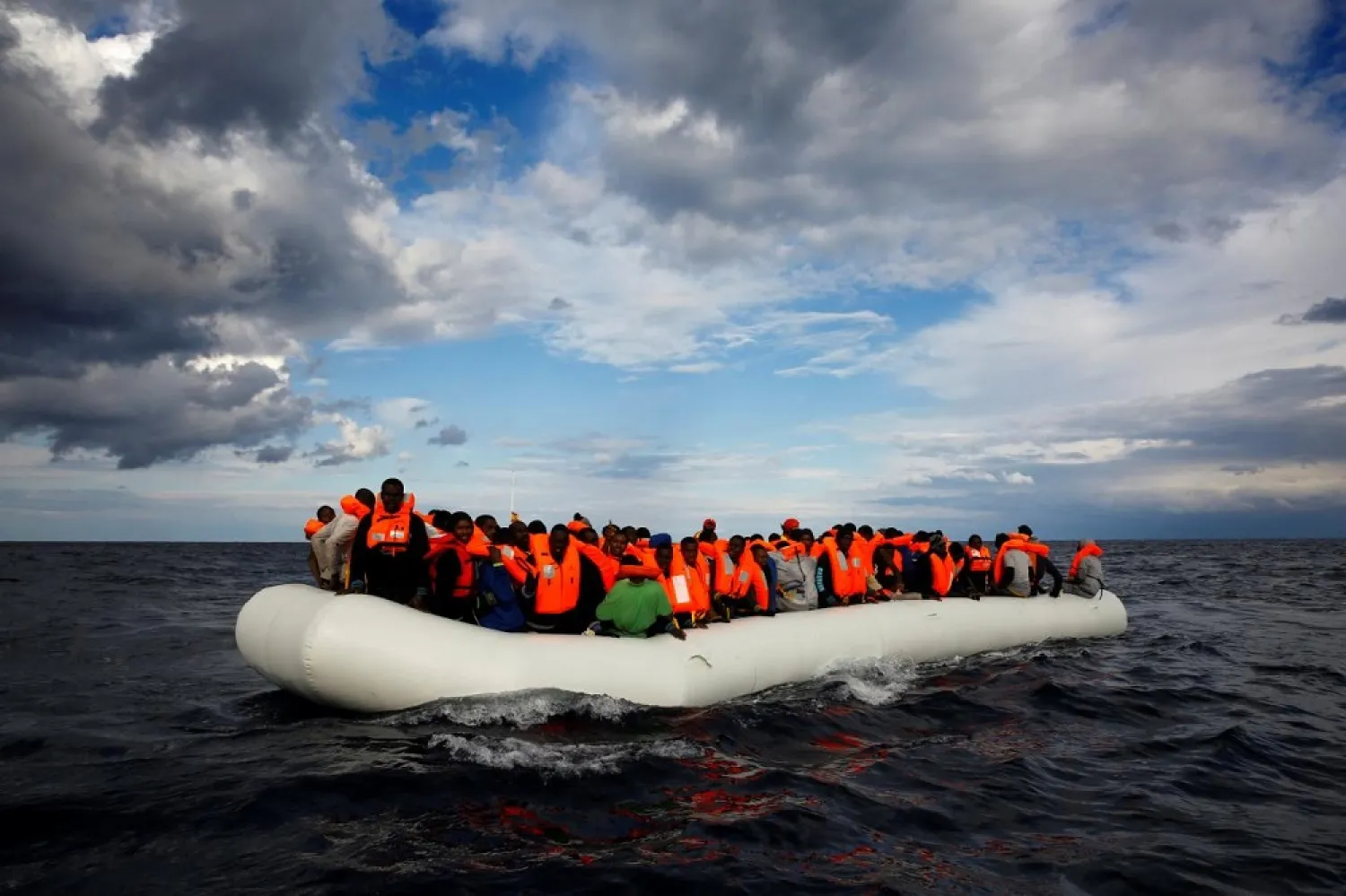At least 25 migrants died on Saturday after their boat sank off Libya’s western coast, Libyan coastguard officials announced.
Survivors were being brought back to port in Tripoli, they added.
Libya is the main departure point for mostly African migrants trying to cross to Europe. Smugglers usually pack them into flimsy inflatable boats that often break down or sink.
Most migrants are picked up by international vessels and taken to Italy, where more than 115,000 have landed so far this year, although an increasing number are intercepted by Libya’s European-backed coastguard and returned to the North African country.
Since July, there has been a sharp drop in crossings, though this week has seen a renewed surge in departures.
Nearly 3,000 migrants are known to have died or be missing after trying to cross to Europe by sea this year, the majority of them between Libya and Italy.
The International Organization for Migration said on Friday that since 2000 the Mediterranean had been “by far the world’s deadliest border”.
After record arrivals from 2014 to 2016, the European Union’s deal with Turkey to stop arrivals to Greece and blocks on migrants inside Libya and off its coast have greatly reduced the flow, the IIOM added.
Professor Philippe Fargues of the European University Institute in Florence, author of the report, said the figures probably underestimated the actual scale of the human tragedy.
“The report states that at least 33,761 migrants were reported to have died or gone missing in the Mediterranean between the year 2000 to 2017. This number is as of June 30,” IOM’s Jorge Galindo told a Geneva news briefing.
“It concludes that Europe’s Mediterranean border is by far the world’s deadliest,” he said.
So far this year some 161,000 migrants and refugees have arrived in Europe by sea, about 75 percent of them landing in Italy with the rest in Greece, Cyprus and Spain, according to IOM figures. Nearly 3,000 others are dead or missing, it said.
“Shutting the shorter and less dangerous routes can open longer and more dangerous routes, thus increasing the likelihood of dying at sea,” Fargues said.
The report said: “Cooperation with Turkey to stem irregular flows is now being replicated with Libya, the main country of departure of migrants smuggled along the central route; however, such an approach is not only morally reprehensible but likely to be unsuccessful, given the context of extremely poor governance, instability and political fragmentation in Libya.”
Though sea arrivals to Italy are down almost a third this year, this week there was a surge in rescues and attempted crossings.
On Friday, Libya’s EU-backed coastguard intercepted more than 600 mainly sub-Saharan African migrants, including many women and children, from a total of five boats that had left from the coast east of the Libyan capital, Tripoli, coast guard officials said.
On Wednesday and Thursday, Italy’s coast guard said some 1,600 migrants were rescued from nearly 20 vessels in the central Mediterranean.
Libya’s UN-backed government said on Thursday it was investigating reports of African migrants being sold as slaves and promised to bring the perpetrators to justice.
Footage broadcast by CNN appearing to show African migrants being traded in Libya sparked an international outcry and protests in Europe and Africa.









